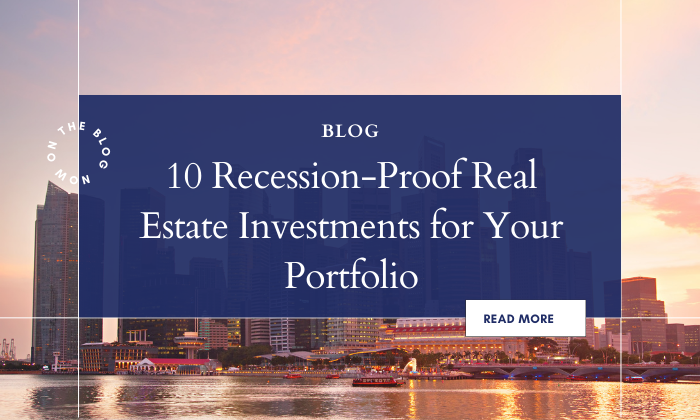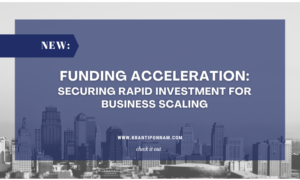In the dynamic realm of real estate investing, strategic choices are paramount, especially in the face of economic uncertainties. In this blog post, we’ll explore ten strategic and recession-proof real estate investments tailored to the current conditions of the US market.
1. Residential Rental Properties: A Time-Tested Haven
Amid economic fluctuations, residential rental properties remain a steadfast choice for investors. The basic human need for shelter ensures a consistent demand for rental units. Historically, rental income has proven resilient even during recessions, making residential real estate a cornerstone of recession-resistant portfolios.
2. Multifamily Housing Developments: Diversification and Stability
Investing in multifamily housing developments offers investors the advantage of diversification within a single investment. Apartments, townhomes, or condominiums provide a stable income stream, and the demand for such housing tends to endure economic downturns. The flexibility and cost-sharing aspects make multifamily housing a strategic choice, especially in times of uncertainty.
3. Self-Storage Facilities: Riding the Minimalism Wave
The trend toward minimalism and flexible living arrangements has propelled the demand for self-storage facilities. As individuals navigate economic challenges, downsizing or moving between homes becomes more common. Investing in self-storage facilities taps into this evolving consumer behavior, making it a recession-resistant asset class with a track record of stable performance.
4. Healthcare Real Estate: Essential and Resilient
The healthcare sector remains a beacon of stability, even in economic downturns. Investing in healthcare real estate, such as medical offices, clinics, or assisted living facilities, aligns with the essential nature of healthcare services. The consistent demand for medical spaces, coupled with long-term leases, contributes to the resilience of this sector in the face of economic uncertainties.
5. Data Centers: Powering the Digital Age
In an increasingly digitized world, the demand for data centers has surged. As businesses and individuals rely heavily on digital services, the need for secure and efficient data storage and processing facilities has become paramount. Investing in data centers positions investors at the forefront of the digital revolution, offering a recession-resistant avenue with the potential for long-term growth.
6. Grocery-Anchored Retail: Necessities Over Luxuries
While traditional retail may face challenges during economic downturns, grocery-anchored retail centers often prove resilient. People prioritize essential goods even in challenging times, making grocery-anchored properties a recession-resistant option. With a focus on daily necessities, these retail centers maintain steady foot traffic and tenant demand.
7. Renewable Energy Infrastructure: Sustainability and Stability
As the world shifts towards sustainable practices, investing in renewable energy infrastructure presents both an environmentally conscious and recession-resistant opportunity. Solar farms, wind energy projects, and other renewable energy assets offer long-term stable returns, often backed by government incentives and growing consumer demand for clean energy solutions.
8. Single-Tenant Net Lease Properties: Stability in Lease Agreements
Single-tenant net lease properties, where the tenant is responsible for property expenses, offer investors stable and predictable income streams. Long-term lease agreements, often with established corporate tenants, provide a sense of security, making these properties less susceptible to economic downturns.
9. Manufactured Housing Communities: Affordable Living Solutions
Amid economic uncertainties, affordable housing remains a critical need. Investing in manufactured housing communities caters to this demand, providing affordable living solutions. The recession-resistant nature of this sector is amplified by the growing interest in downsizing and the need for cost-effective housing options.
10. Infrastructure Investments: Building the Foundation
Infrastructure investments, including transportation and utility projects, play a pivotal role in economic development. Investing in infrastructure assets aligns with long-term growth trends and can provide stable returns, often supported by government initiatives and public-private partnerships.
Conclusion: Building Resilience in Your Real Estate Portfolio
In the intricate dance of real estate investing, the melody of success often lies in strategic choices and adaptability. As we explored the landscape of recession-proof real estate investments tailored for the USA market, it became evident that diversification is the key to building resilience in your portfolio.
From the stalwart nature of residential rental properties to the forward-looking investment in data centers, each asset class we’ve discussed brings its unique melody to the symphony of a well-rounded investment strategy. The essence of recession-resistant investing lies not just in weathering economic storms but in thriving amid uncertainty.
As an investor, consider these ten avenues as building blocks for your portfolio, each contributing a distinct note to the composition. Residential rentals provide foundational stability, multifamily housing offers harmonious diversification, and renewable energy infrastructure represents the progressive crescendo of sustainability. In times when economic fluctuations seem like a stormy sea, these recession-resistant investments act as anchors, grounding your portfolio with stability and potential growth.
Remember that real estate is not a monolith; it’s a dynamic landscape with opportunities that evolve. Monitoring market trends, staying informed about economic shifts, and embracing the adaptability to refine your portfolio over time are essential elements of successful real estate investing.
As you embark on the journey of fortifying your wealth through recession-proof real estate, let this guide be your compass. Choose your investments wisely, considering not only their historical performance but their potential to weather the ever-changing economic climates. With each strategic move, you contribute to the resilience and longevity of your real estate portfolio, ensuring that it not only survives but thrives in the face of uncertainty.
In the symphony of real estate investing, let your portfolio be a masterpiece—a composition that withstands the tests of time and echoes with the sound of long-term success




